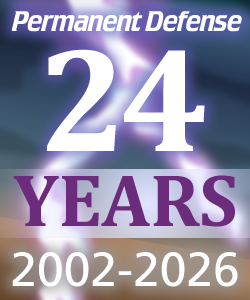August 1st, 2019
Journalists, when reporting on I-976 (devastates transportation funding), don’t forget about the impacts!
Rethinking and ReframingStatements & Advisories
Equations. They’re an essential element of mathematics: statements that assert the equality of multiple expressions.
There are two sides to every equation, but you wouldn’t know that from reading the materials that Tim Eyman sends out about the initiatives that he sponsors.
For example, consider the “info sheet” that Eyman distributed today for Initiative 976. It contains no discussion about what the people of Washington stand to lose if Eyman’s latest measure is adopted. There isn’t even a passing acknowledgment that the initiative could result in the cancellation of countless projects to improve mobility plus cutbacks to existing services.
The Office of Financial Management analyzed last week that I-976 would result in the loss of more than $4 billion for transportation investments in revenue at the state, regional, and local levels over six years.
Affected projects and services include:
- Amtrak Cascades, a regional intercity rail service that provides Washington’s only rail link with British Columbia
- Road and sidewalk maintenance in sixty cities, including road resurfacing
- King Country Metro bus service funded by Seattle taxpayers
- Essential freight mobility projects needed to ensure the smooth movement of goods
- Sound Transit system expansion (ST3), including light rail, commuter rail, express bus, and bus rapid transit projects
Eyman is fully aware that services like Amtrak Cascades rely upon vehicle fees for funding and that the Washington State Constitution prohibits the use of taxes on fuel for non-highway purposes.
Eyman is lying when he suggests the funding for these projects and services could simply come from somewhere else. Where’s that $4+ billion supposed to come from? Money for the essential services our economy requires doesn’t grow on trees. It comes from taxes. Taxes are investments… essential investments. It is not possible to repeal billions in revenue and suffer no consequences. There are always consequences. This is basic math!
We saw this in the aftermath of I-695 in 1999 and I-776 in 2002.
For example, Washington State Ferries still hasn’t fully recovered from the impact of I-695, while the King County Department of Transportation still hasn’t recovered from the impact of I-776. Those measures were considered and voted on decades ago, but the impacts are still being felt today, as the elected officials and public workers who are responsible for providing mobility services to the public can attest.
Many communities lost funding against their will. For example, people in King County voted against both I-695 and I-776.
If I-976 is implemented, then there will be cuts to already-approved projects and services. These would be significant cuts that would be noticeable and widely felt. Cuts that increase traffic, make our tax code more unfair, and saddle us with costs we don’t need or want. For example, Everett and Tacoma could lose their planned light rail stations because it’s unlikely there would be sufficient funds to build them.
That’s the other side of the vehicle fee equation… the side Eyman doesn’t want you to ever talk about, but which you have a duty and obligation to cover so that Washingtonians can make an informed decision on I-976.
The truth is, Washingtonians and their elected representatives have voted repeatedly to fund multimodal transportation infrastructure.
(“Multimodal” refers to the concept of enabling people to get around through different modes, whether that’s walking, biking, taking the bus, taking the train, vanpooling, or using a scooter, as opposed to merely driving alone.)
Eyman is ideologically opposed to investing in any kind of transportation infrastructure that does not subsidize automobile travel… and in particular, single occupancy vehicle travel. (High occupancy vehicle lanes are part of our highway system, but Eyman opposes those because you can’t drive alone in them during peak hours, at least not without paying a toll, something else Eyman is opposed to.)
How do we know this? Because Eyman has previously sponsored initiatives to redirect money from mass transit to roads (I-745 in 2000), open high occupancy vehicle lanes to everyone during all but a few hours of the day (I-985, 2008) and prohibit variable tolling (I-1125, 2011). Washington voters rejected all three of those initiatives.
Sadly, Tim Eyman doesn’t care. He is just as determined now to undermine and destroy multimodal infrastructure as he was twenty years ago.
Eyman also doesn’t care that voters in Puget Sound voted repeatedly to expand light rail, commuter rail, express bus, and bus rapid transit projects by approving Sound Move in 1996, Sound Transit 2 in 2008, and Sound Transit 3 in 2016.
The outcome didn’t go his way, so he considers the will of the voters irrelevant. Meaningless. Not even worth acknowledging.
It is vital that voters understand both sides of the equation — not just Eyman’s side — before they return their ballots. So make sure when you’re covering I-976 to talk about the impacts. In detail. I-976 would wreak havoc in every part of the state, so no matter where your audience is, there’s a local angle (perhaps several!) to explore.
At the NO on I-976 website, home to the Keep Washington Rolling coalition, you’ll find a useful fact sheet which delves more deeply into the impacts, as well as frequently asked questions and a list of cities that would be directly affected by I-976.



